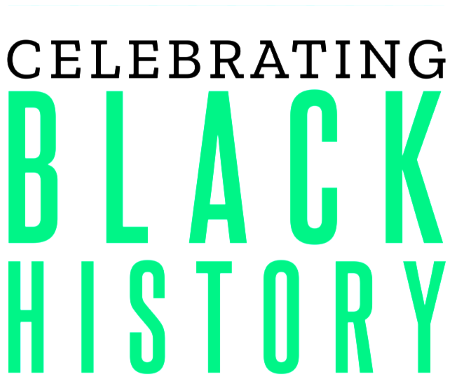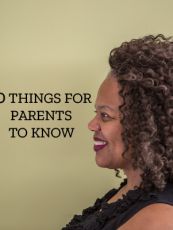
Black History Month Highlight: Meet Evans and Declan
As a first-generation male of color born in Boston and raised in Rhode Island, life wasn’t always easy for Evans Erilus. His parents, both Haitian immigrants, worked hard to provide for their children. However, this left Erilus and his siblings often navigating life independently, having to figure out things like the FAFSA, registering for the SATs and applying to college on their own. He needed a mentor, a caring adult role model outside of his family, to help support him academically, socially and emotionally like the Big Brother he has become for Declan Hall through the Big Brothers Big Sisters of Eastern Massachusetts Mentor 2.0 program.
Launched in 2016, Big Brothers Big Sisters of Eastern Massachusetts’ technology-enriched one-to-one youth mentoring program, Mentor 2.0, directly targets high school students. Mentor-mentee pairs build their relationships through weekly online communication and monthly in-person meetings at three of the nonprofit’s partner Boston Public High Schools. Erilus, 37, of Everett, was matched with Hall, a junior at Boston Green Academy, nearly three years ago. They have since forged a friendship that goes beyond academic support, bonding over the music industry, wrestling and issues of diversity and equality and activities out in the community, such as going for ice cream and a movie.
“Our parents or legal guardians are our first teachers, but sometimes things are better taught or mirrored by someone else and that’s where mentoring comes into play,” says Erilus. “A mentoring relationship is a constantly evolving process built on trust and mutual respect and gives young people opportunities to feel supported which helps to build their self-confidence, try new things and grow. Mentor 2.0 affords me the opportunity to be a mentor with my busy schedule. We definitely need more mentors in this world.”
 Erilus lives and breathes mentoring. In addition to serving as a Big Brother to Hall, he juggles multiple roles at Bunker Hill Community College. As an Educational Case Manager, he helps international nurses transition to the United States and access career and education support. As a Program Coordinator for the HOPE (Halting Oppressive Pathways through Education) Initiative, he works with groups of Black and Latino male students, alongside faculty and staff, to examine and eliminate the social, institutional and academic barriers that often prevent males of color from achieving their full potential in school and beyond. And, as an Academic Advisor he serves as a professional mentor and resource for students of all backgrounds on campus. Ensuring males or color, like Hall, achieve their fullest potential is of the upmost importance to him.
Erilus lives and breathes mentoring. In addition to serving as a Big Brother to Hall, he juggles multiple roles at Bunker Hill Community College. As an Educational Case Manager, he helps international nurses transition to the United States and access career and education support. As a Program Coordinator for the HOPE (Halting Oppressive Pathways through Education) Initiative, he works with groups of Black and Latino male students, alongside faculty and staff, to examine and eliminate the social, institutional and academic barriers that often prevent males of color from achieving their full potential in school and beyond. And, as an Academic Advisor he serves as a professional mentor and resource for students of all backgrounds on campus. Ensuring males or color, like Hall, achieve their fullest potential is of the upmost importance to him.
“Declan and I often talk about what it means to be members of an underrepresented population in today’s world,” says Erilus. “We go beyond the narrative of slavery as the main touchstone of Black history learned in school. Instead, we discuss real issues, such as the need for different kinds of role models for underrepresented communities, beyond athletes and entertainers. Empowering Black and Latino males to see what is possible and giving them support along the way is critical to helping them see and reach their fullest potential.”
Hall, 18, lives in Boston with his mother and sister. As a junior at Boston Green Academy, he enjoys algebra and playing in pick-up basketball games, including against Erilus in a friendly mentor-mentee match competition for the program. He is also a member of MORE (Men, Organized, Responsible and Educated), a school-based mentoring program for young men of color. As an aspiring music producer, photographer and cinematographer, he values the relationship with Erilus and his support of his dream to attend Academy of Art University in San Francisco.
“It’s nice to have someone talk about normal things, nothing crazy, such as ideas I have, college and future plans,” says Hall. “Evans approaches me as a friend, not as an authority figure. He has taught me to think of different perspectives and think outside the box and he has pushed me to follow my dreams. He understands me better than most people in my life.”
This spring, the first cohort of mentees for the Mentor 2.0 program will graduate from high school. In its 70th year, the largest Big Brothers Big Sisters affiliate in New England, has created and served more than 20,000 matches and will serve more than 4,000 matches this year.
To learn more about how to get involved, visit emassbigs.org.
Children s safety is our number one priority; throughout the duration of the match, not just the beginning!
